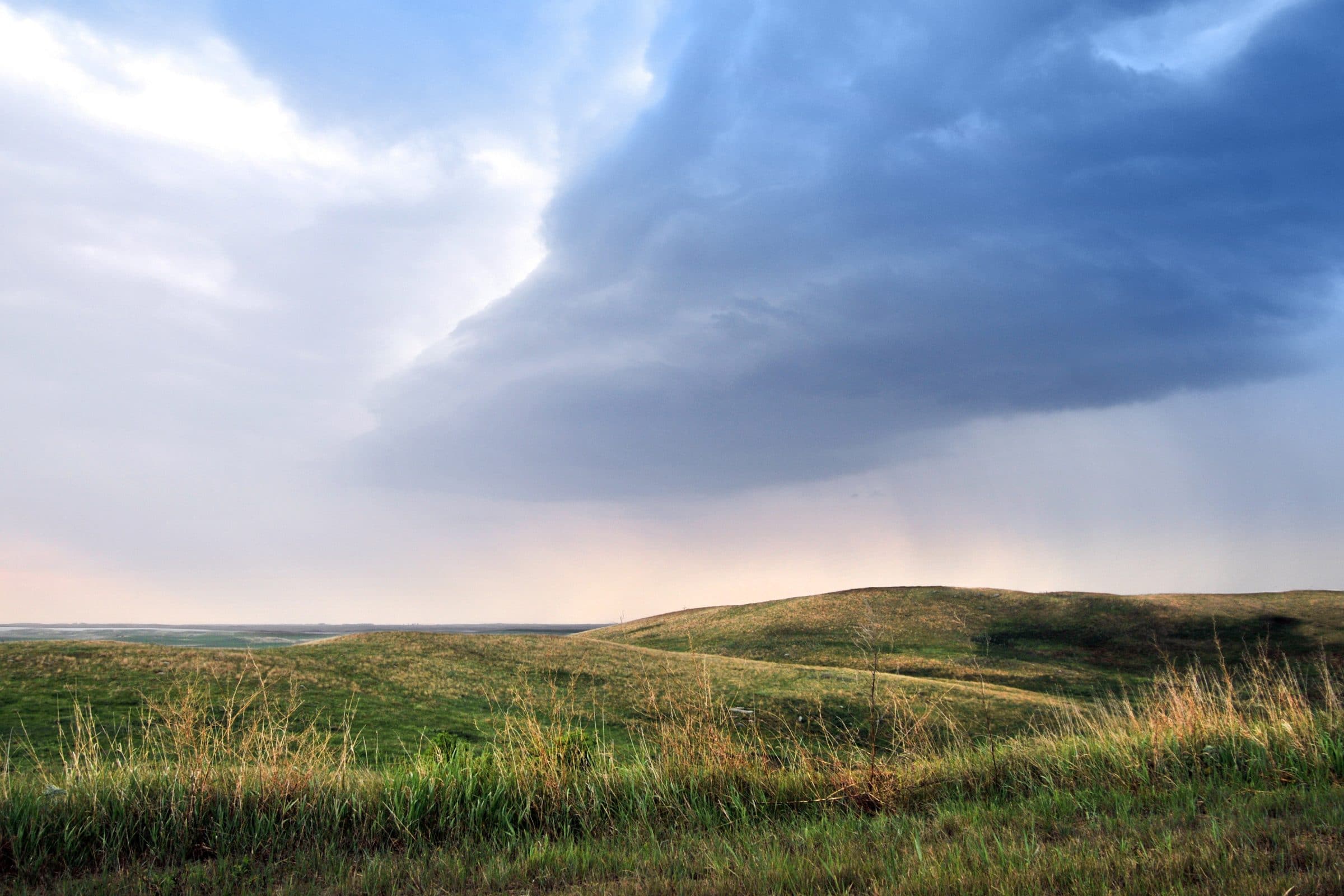News
March 4, 2021
Prairie farmers and ranchers can further enhance biodiversity on their land through new Weston Family Prairie Grasslands Initiative
Ducks Unlimited Canada joins forces with foundation and prairie producers to benefit local environment

WINNIPEG – Prairie farmers and ranchers are key partners in one of the largest prairie grassland conservation efforts in Canadian history. Announced yesterday, the Weston Family Prairie Grasslands Initiative supports organizations that are working with local communities to deliver conservation solutions that are both economically and environmentally sustainable.
As one of the organizations involved, Ducks Unlimited Canada (DUC) will work collaboratively with prairie farmers, ranchers and other landowners to protect grasslands and wetlands over the next five years. Grasslands and wetlands are essential to a resilient landscape, and it is through these partnerships that producers can be compensated for their ongoing conservation efforts.
“DUC has been working on the Canadian Prairies since our organization was established more than 80 years ago,” says Karla Guyn, chief executive officer for DUC. “We have a strong relationship with, and a deep respect for, the farmers and ranchers who steward the lands that support biodiversity in Canada. Working together, we can unite the needs of conservation and agriculture on this important working landscape.”
Over the next five years, the Weston Family Prairie Grasslands Initiative will contribute $5 million to DUC’s conservation easement program that will see more than 10,000 hectares (24,710 acres) of vital habitat protected. This contribution directly benefits agricultural producers while maintaining Canada’s biodiversity and providing habitat for a wide variety of species including waterfowl, songbirds and pollinators.
Conservation easements are legal agreements between a landowner and DUC to preserve natural features and resources on their land. Under these agreements, the habitats are protected in perpetuity, but the land remains in private ownership and in grassland-based agricultural production.
“It’s exciting to see what can be accomplished by bringing Canadians together to find innovative and sustainable approaches to restoring and protecting biodiversity,” said Tamara Rebanks, chair of the Weston Family Foundation. “Our Foundation is committed to supporting landscape-level efforts to find solutions to our environmental challenges and, ultimately, improve the well-being of Canadians.”
The funding DUC is receiving for its programs is part of nearly $25 million in grants that have been awarded to five organizations across the country. The Weston Family Prairie Grasslands Initiative will support projects that conserve nearly four million acres of priority prairie grassland habitat by actively engaging landowners and agricultural producers.
– 30 –
About Ducks Unlimited Canada: Ducks Unlimited Canada (DUC) is the leader in wetland conservation. A registered charity, DUC partners with government, industry, non-profit organizations and landowners to conserve wetlands that are critical to waterfowl, wildlife and the environment. Learn more at ducks.ca
About the Weston Family Prairie Grasslands Initiative
The Weston Family Prairie Grasslands Initiative is a five-year collaboration to celebrate, steward and protect one of Canada’s most ecologically valuable and threatened ecosystems. Nearly $25M has been committed by the Weston Family Foundation to five organizations to accelerate the implementation of sustainable practices and achieve landscape-level impact: Nature Conservancy of Canada, Ducks Unlimited Canada, Saskatchewan Stock Growers Foundation, Grasslands National Park (Parks Canada), and Meewasin Valley Authority. Each organization brings additional funding and in-kind donations for a total of $70M going toward this collaboration over the next five years. The Initiative aims to improve species-at-risk habitat, enable wildlife movement, expand the amount of land protection in the prairies, and ultimately increase long-term ecological and economic stability. Dozens of partners will support this work that will affect nearly four million acres of priority native grasslands in one of the largest prairie grasslands conservation efforts in Canadian history.
